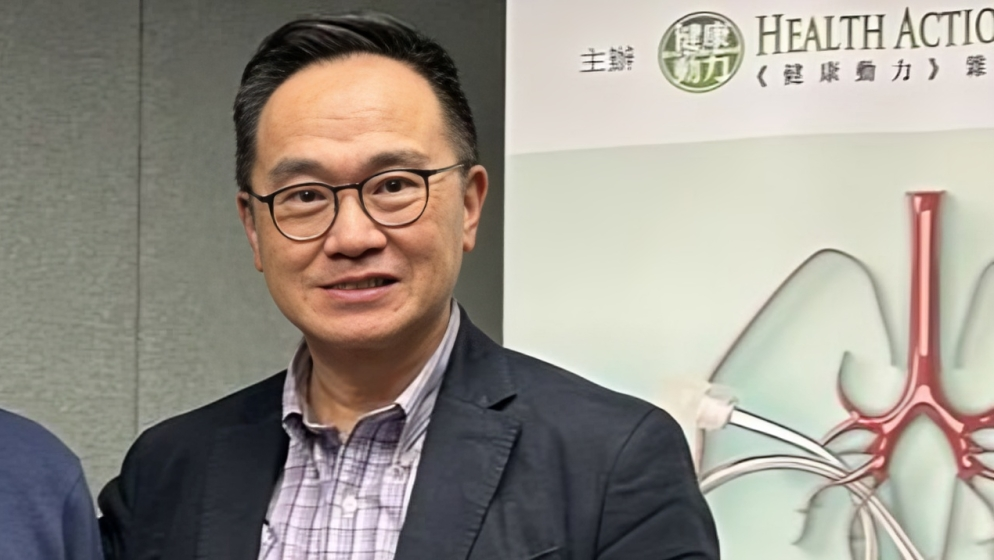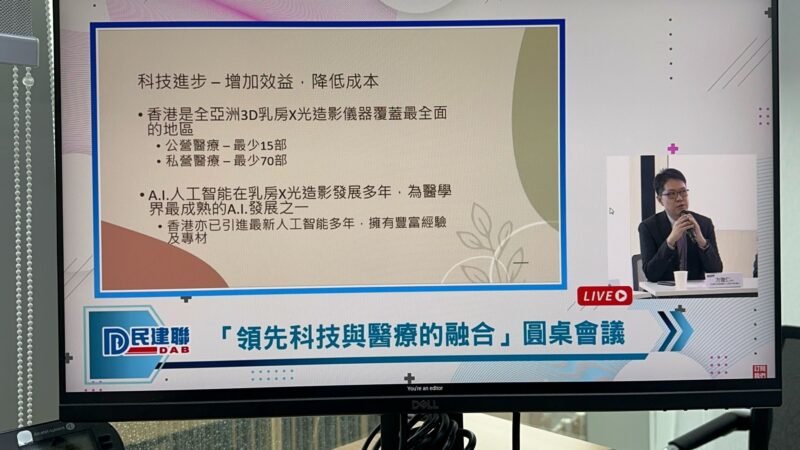
Norman Ng: Can AI Reduce the Need for Radiologists?
Norman Ng, Director of Patient Advocacy and Public Affairs at Healthcare Thinkers, shared a post on LinkedIn:
“As a patient advocate, it was really inspiring to hear Dr. Fong Chun Yan speak from the following radiologists!
Regarding the use of AI in Hong Kong’s medical field, many people think that it can reduce the need for radiologists, and some people even say that we will lose our jobs. But in fact, we are happy to accept this. Because as long as there is a new technology that can help the people of Hong Kong, and even the people of the world, we are very welcome.
First of all, as Dr Molly Li just said, artificial intelligence has been used around the world for many years in cancer screening, and there are also very mature technologies to assist in detection. Here is some background information: As mentioned earlier, lung cancer is the number one killer in Hong Kong, but breast cancer is not the number one killer in Hong Kong, but the number one cancer in women.
In fact, the most common cancer in women is not lung cancer, but breast cancer. Although it is not the number one killer, it is actually curable. For us healthcare workers, this is even more worthy of the government’s allocation of resources to help the general public ‘pick up a life’ (in layman’s terms).
In civilized places around the world, there is already government support and funding from insurance agencies to promote universal screening. Whether in foreign countries such as the United States, the United Kingdom, Europe, South Korea, or Taiwan, the government not only encourages but even fully funds women for cancer screening. However, over the years, Hong Kong has been slower than other countries in this area, perhaps due to resource problems (including human and financial resources).
However, Ah Q thinks that it is precisely because the government has not supported it for many years that it has created today’s social environment – from our point of view, it is more advanced and better than foreign countries, and it is more suitable to promote the next step of breast cancer screening.
As you know, Chinese mainland has not popularized credit cards for so many years, but the Chinese government knows how to use technology to skip the credit card stage and enter electronic payment. And now, China’s electronic payment is the best in the world. I wonder if Hong Kong can also break free from traditional thinking and not follow the trend of breast screening in China, the United States or other parts of Asia, but skip a step and do better than them and become a leader.
In fact, due to the lack of strong government support in the past, many women have turned to the private market and sought technological assistance for breast screening. As a result, Hong Kong has been one of the best in Asia in terms of mammography technology, especially 3D mammography, over the past decade, driven by demand from the private market.
Hong Kong has the largest number of 3D mammography machines in Asia. As early as 2014 (more than a decade ago), many large foreign studies (including more than 400,000 cases) have proved that 3D mammography is more than 40% more accurate than traditional 2D imaging (commonly used in Asia and other regions), especially for the detection of invasive breast cancer.
Currently, there are nearly 100 3D imaging machines in Hong Kong, each of which can examine hundreds to thousands of women per month. In recent years, in addition to being applied to lung cancer detection, artificial intelligence has also achieved remarkable results in mammography.”

More posts featuring Norman Ng.
-
Challenging the Status Quo in Colorectal Cancer 2024
December 6-8, 2024
-
ESMO 2024 Congress
September 13-17, 2024
-
ASCO Annual Meeting
May 30 - June 4, 2024
-
Yvonne Award 2024
May 31, 2024
-
OncoThon 2024, Online
Feb. 15, 2024
-
Global Summit on War & Cancer 2023, Online
Dec. 14-16, 2023
